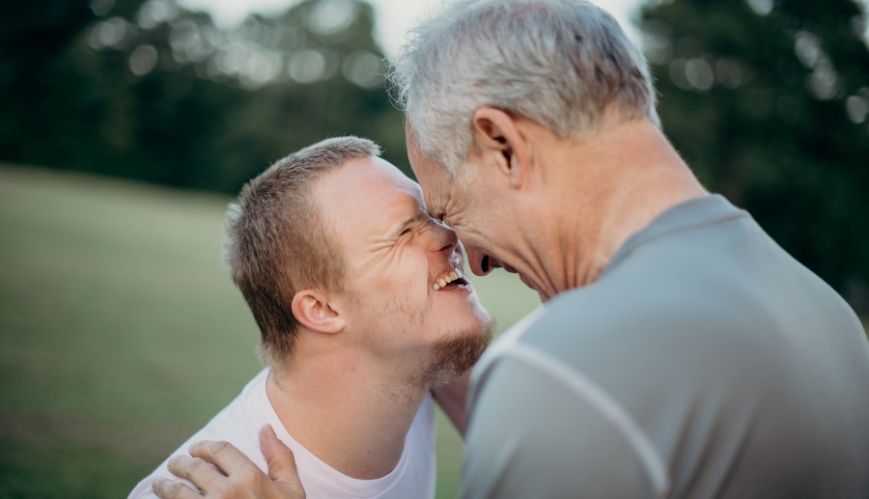Made in the image of God

Made in the image of God
27 October 2017
To be human is to be made in God’s image because he has bestowed it upon them. This is what makes people special. Photo: Nathan Anderson
A recent article in The Daily Telegraph in Sydney reported a push by experts to offer genetic screening for Fragile X syndrome, which is the leading cause of inherited intellectual disability.
In the article, researcher Sylvia Metcalfe suggests that “genetic testing empowered women”, since they can use the testing to make decisions.
The decision, of course, being whether to terminate a pregnancy or not.
What is not stated in the article is that if the diagnosis does identify a potential disability it is very likely to lead to termination.
A study revealed that in the United States over two-thirds of babies with Down Syndrome are aborted, with the rate even higher in Australia and Europe.
These rates call into question the easy platitude that “every life is precious”. The question that arises is what sort of message this sends about the value of life for people with disabilities.
Implicit is the idea that the lives of people with disabilities are worth less than the so-called “able-bodied”. This speaks to our societal valuing of autonomy, control and health – which leads us to shun or pity weakness, dependence and vulnerability.
These sorts of assumptions have already led some ethicists to suggest that it should be permissible to perform what they euphemistically call “post-birth abortion” of unwanted children with disabilities.
On one level it is not surprising to see this sort of suggestion made. In fact, bio-ethicist Peter Singer suggests the only reason we are uncomfortable with infanticide is because of the lingering impact of the Christian view of the person.
He suggests we abandon that sort of thinking. Singer writes that “membership of the species Homo sapiens is not enough to confer a right to life”. Instead of basing worth on someone being human, he argues that we should consider if they have the characteristics, such as rationality, autonomy or self-consciousness, that make someone a person.
This is not to suggest that Western society as a whole will publicly embrace the return of the practice of infanticide. But what cannot be ignored is that people with disabilities are often regarded with pity, seen in terms of what they cannot do rather than who they are.
This view ignores the real lived experience of people with disabilities. Writing in The New York Times, disability activist Harriet McBride argues that there is an “unexamined assumption that disabled people are inherently ‘worse off’, that we ‘suffer’, that we have lesser ‘prospects of a happy life’.”
So what, then, could provide a challenge to this way of viewing people with disabilities? We should return to how the Christian idea of the person changed the Western world.
In this we can agree with Singer that the early Christians had a transformational understanding of what it was to be human. They understood all people as being made in the image of God.
This is what makes people special. This idea of the image is not further spelt out. Instead it is simply stated.
There is no precondition attached to attain it. To be human is to be made in God’s image because he has bestowed it upon them.
There is, therefore, no one who is more or less human based on characteristics that we may value. This is seen in the way that this understanding caused the early Christians to care for all people regardless of race, gender, social class, age or beliefs.
They would, in fact, rescue unwanted children who were abandoned to the elements. As the influence of Christianity on the West increased so did this idea that all people were of equal worth because they were made in God’s image.
If this is truly believed then it impacts the way we regard the value of children with disabilities. We do not judge worth on their capacities or qualities.
Instead, we recognise every human as having worth and dignity because they are made in God’s image. Theologian Oliver O’Donovan argues that we should not deliberate over what characteristics make someone a “person”.
Instead, governed by the understanding of people made in God’s image we start with a commitment to treat all humans as persons.
When we commit to knowing and loving someone we can discover within them the personhood that all people possess. When we take this approach, we can recognise that people with disabilities are in fact like us and, therefore, deserve our love and respect and should be regarded as infinitely valuable.
We live in a society that affirms the equal rights of all people and yet destroys the lives of children with disabilities before they are born.
The call for Christians is to be people who provide welcome and care for all people no matter their capacity, because we recognise that they, too, are made in the image of God.
Vaughan Olliffe completed a Bachelor of Divinity at Moore Theological College, which included a major project exploring Disability and the Image of God. He is now the manager of the Doorways program in the Australia Eastern Territory.
Read another article on disability by Vaughan Olliffe.